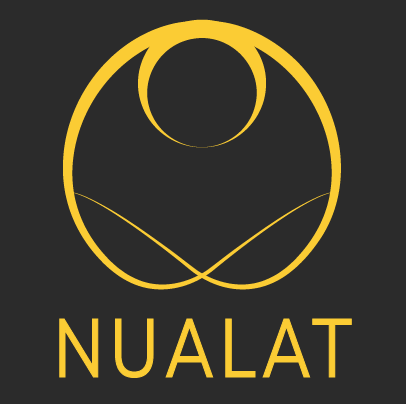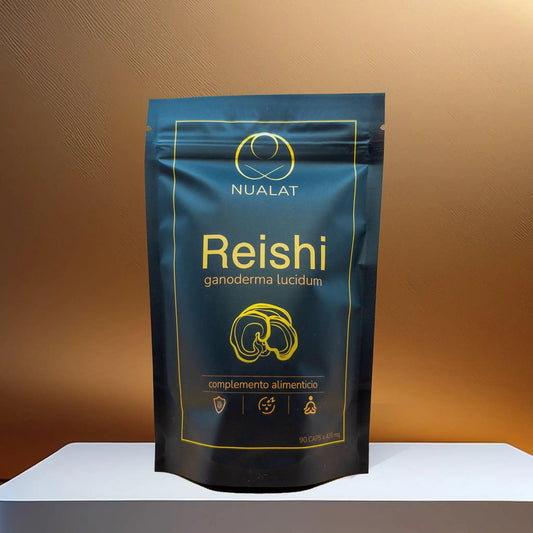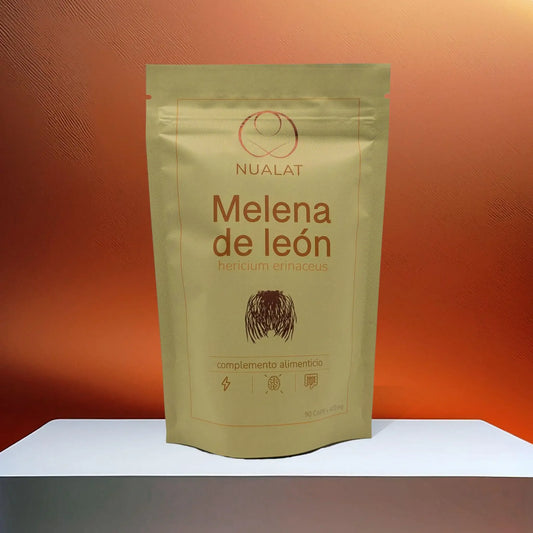
Reishi and immunity: benefits with evidence
Share
When people talk about "boosting your immune system," Reishi often comes up as one of the most intriguing medicinal mushrooms. But if you strip away the marketing hype, what real role can Reishi play in immunity, and what are its limitations? The short answer is clear: Reishi extracts can modulate the immune system thanks to certain bioactive compounds, but they are not a "magic bullet" nor do they replace a healthy lifestyle.
In other words, Reishi doesn't make anyone invincible against viruses or bacteria, but it can help the body respond better to stress, inflammation, and certain external aggressions. The key is understanding how it works and what kind of evidence we have, especially in humans. Only then can it be used judiciously, without unrealistic expectations, and as part of a broader health strategy.
If you're considering taking a Reishi supplement to support your immune system, what matters isn't just what the label promises, but what mechanisms have been observed in studies and what type of extract you're consuming. Not all products are created equal: the part of the mushroom used, the extraction method, and the concentration of active compounds make all the difference between a simple decorative powder and a truly effective extract.
How does the immune system work, and where does Reishi fit in?
The immune system is a complex network of cells, organs, and chemical signals that work together to protect us from infections and maintain internal balance. Broadly speaking, we can think of it as having two main "building blocks":
-
Innate immunity , the first line of defense: physical barriers (skin, mucous membranes), macrophages, neutrophils, NK cells…
-
Adaptive immunity , more specific and "memorized": T and B lymphocytes, antibodies, etc.
Medicinal mushrooms like Reishi are of great interest to science because they contain molecules that interact with these immune cells. They don't "force" them to be constantly activated, but rather help balance hyperreactive responses (excessive inflammation) or overly weak responses (susceptibility to infections).
The key compounds in Reishi: why they may influence immunity
Reishi (Ganoderma lucidum) is not an isolated substance, but rather a small, natural “biochemical laboratory.” Among its most studied components are:
-
Polysaccharides, especially beta-glucans
These complex sugars interact with receptors present on macrophages, dendritic cells, and other immune cells. This interaction can enhance the immune system's ability to recognize pathogens and coordinate a more effective and balanced response. -
Triterpenes (ganoderic acids and others)
These compounds have antioxidant and anti-inflammatory properties. They don't "turn off" the immune response, but rather help prevent the signal from becoming uncontrolled, which is important in chronic inflammatory processes. -
Other antioxidant components
They help reduce damage from oxidative stress, a factor that can weaken the immune response in the long term.
The combination of these compounds is what makes Reishi considered an adaptogen : a substance that helps the body regain balance in situations of physical, emotional or environmental stress.
What does the scientific evidence say about Reishi and immunity?
In both preclinical and clinical studies, Reishi extracts have shown interesting effects on various immune parameters. For example, some studies have observed:
-
Increased activity of certain immune system cells (such as lymphocytes or NK cells) in certain contexts.
-
Modulation of pro-inflammatory cytokines, contributing to a more controlled inflammatory response.
-
Antioxidant effects that may protect immune cells from oxidative damage.
It is important to emphasize that many of these studies have been conducted in specific populations (for example, cancer patients, people with immune disorders, or animal models) and under controlled conditions. Therefore, we cannot automatically extrapolate that "everyone" will obtain the same result with any Reishi product.
What can be said with certainty is that Reishi:
-
It interacts with the immune system through its polysaccharides and triterpenes.
-
It can support a more efficient and balanced immune response.
-
It is not a medicine and is not intended to treat, cure or prevent specific diseases, but to act as a complement within a healthy lifestyle.
Reishi and immunity: benefits… and limitations
In practice, what can you expect from a good Reishi extract on a daily basis?
Reasonable benefits that can be sought:
-
General support for the immune system during times of increased demand (seasonal changes, periods of stress, lack of rest).
-
Contribution to better stress management, which indirectly also influences immunity.
-
Antioxidant support that helps protect cells from oxidative damage.
Limits that should be clear:
-
It's not a "shield" against colds or infections. It can help the body respond better, but it doesn't eliminate the risk.
-
It does not replace medical treatment, a balanced diet, or rest.
-
Its effects are usually gradual ; we're talking about weeks and months of constant use, not an immediate solution.
When a product promises that "you will never get sick again" or that it "cures" diseases, it is crossing a line that does not respect either scientific evidence or the regulations for food supplements.
How to choose a Reishi that can actually support your immunity
In a saturated market, the key question isn't just "Should you take Reishi?", but rather "What type of Reishi are you taking ?". To make sense from an immunological perspective, consider the following:
-
Part of the fungus used
The most interesting extracts are those from the fruiting body (the mushroom's "cap"), not mixtures of mycelium and culture grain. Mycelium growing on cereal can significantly dilute the amount of active compounds. -
Type of extract and concentration
Ideally, you want a standardized extract with a clear ratio (for example, 20:1) and, even better, with specified levels of polysaccharides/beta-glucans and, if possible, triterpenes. This tells you that you're not just consuming "brown powder" without any added ingredients. -
Independent laboratory analyses
A good product should provide laboratory data on:-
Content of active compounds.
-
Absence of heavy metals and contaminants.
-
Microbiological control (bacteria, molds, yeasts).
Fungi absorb what is in their environment; without analysis, there are no guarantees of purity or safety.
-
-
Brand transparency
Does the brand explain where its Reishi comes from, how it's extracted, and how it's analyzed? Does it share data, or does it just use generic language? Transparency usually goes hand in hand with quality.
At NUALAT, for example, the philosophy is clear: to work with concentrated extracts of the fruiting body , with analyses conducted in independent laboratories and without unnecessary additives. That is the basis for being able to speak honestly about immune system support.
In what context does it make the most sense to use Reishi?
Reishi may play an interesting role for people who:
-
They live under continuous stress (work, personal) and want to support their resilience.
-
They seek extra support during periods of higher workload (winter, seasonal changes, peak workloads).
-
They wish to integrate into their routine a supplement with a traditional history and the backing of modern research.
Always keep one idea in mind: it's a complement , not the central focus of your health. Its function makes sense when it's combined with:
-
A diet rich in vegetables, fiber, and minimally processed foods.
-
I get enough sleep regularly.
-
Daily movement and basic stress management.
Reishi and immunity: the key idea to remember
If your goal is to "support your immune system," the key isn't to find the most eye-catching supplement, but rather the one that's most honest and consistent with the evidence . A good Reishi extract:
-
It provides compounds such as beta-glucans and triterpenes, capable of modulating the immune system and supporting inflammatory balance.
-
It can be an interesting ally in your health strategy, provided it comes from a fruitful source , is concentrated , and has been tested in a laboratory .
-
It has clear limits: it does not replace a healthy lifestyle or any medical treatment.
The final decision is yours, but if you choose a well-formulated Reishi, with transparency and analytical support — like the one we work with at NUALAT — you are much closer to harnessing its full real potential… without falling for empty promises.






